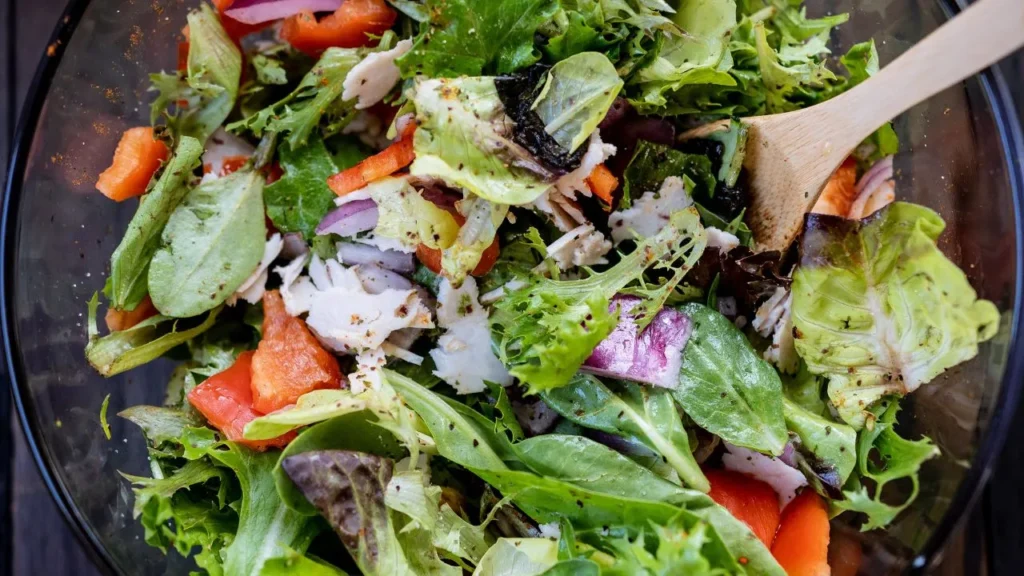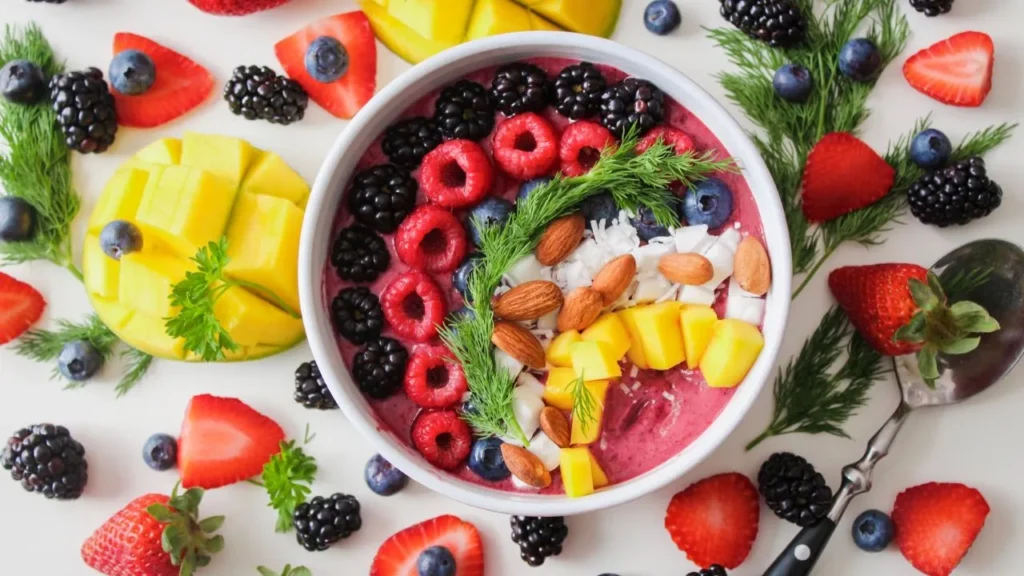A single cup of kidney beans can supply about one-third, or even more, of your daily fiber needs. Other excellent high-fiber foods include berries, cruciferous vegetables, oats, chia seeds, and dark chocolate.
The potential health benefits of fiber include:
- Supporting weight loss
- Reducing blood sugar levels
- Preventing constipation
- Enhancing heart health
- Nourishing beneficial gut bacteria
The Academy of Nutrition and Dietetics suggests consuming around 14 grams (g) of fiber for every 1,000 calories consumed daily.
The table below highlights the recommended daily fiber intake across different age groups:
| Age Group | Male | Female |
|---|---|---|
| 1–3 years | 14 g | 14 g |
| 4–8 years | 19.6 g | 16.8 g |
| 9–13 years | 25.2 g | 22.4 g |
| 14–18 years | 30.8 g | 25.2 g |
| 19–50 years | 38 g | 25 g |
| 51+ years | 30 g | 21 g |
Unfortunately, most Americans consume only around 15 g of fiber per day, which is just about half of what is recommended.
What is Fiber and What Types Exist?
Traditionally, fiber was defined as a carbohydrate the body couldn’t digest. Recently, however, experts discovered that some digestible substances also share similar properties with fiber, making it more challenging to define.
Fiber can be classified into different types:
- Dietary fiber: Naturally found in plant-based foods.
- Added fiber: Manufacturers add this to certain products to boost their health benefits.
- Soluble fiber: Dissolves in water and is digestible.
- Insoluble fiber: Non-digestible.
Soluble fibers, found inside plants (like pectin), are present in fruits, vegetables, oats, and barley, potentially helping regulate blood sugar and cholesterol levels.
Insoluble fibers, derived from the outer skins of plants, pass directly through the digestive system and help prevent constipation. Bran, celery, whole grains, and seeds are prime examples.
Health Benefits of Fiber
Incorporating fiber into your diet can offer a variety of health advantages:
- Cholesterol reduction: Fiber in the digestive system can decrease cholesterol absorption, particularly if you use statins or fiber supplements like psyllium.
- Weight management: High-fiber foods, such as fruits and vegetables, are generally low in calories. Additionally, fiber slows digestion, helping you feel fuller for longer.
- Constipation prevention: Insoluble fiber adds bulk to your stool and can accelerate digestion, preventing constipation.
- Blood sugar management: High-fiber foods take longer to digest, slowing glucose absorption and helping maintain consistent blood sugar levels.
- Cancer risk reduction: Adequate fiber intake may lower the risk of certain cancers, such as colon cancer. For instance, pectin found in apples may have antioxidant properties.
When introducing more high-fiber foods into your diet, do so gradually to prevent gas and bloating. Remember to drink plenty of water.
22 High-Fiber Foods to Include in Your Diet

- Pears (3.1 grams per 100 grams) Tasty and sweet, pears provide 5.5 grams of fiber per medium-sized fruit.
- Strawberries (2 grams per 100 grams) A summer favorite, strawberries offer a sweet snack with 3 grams of fiber per cup.
- Avocados (6.7 grams per 100 grams) Besides fiber, avocados are rich in healthy fats, potassium, and vitamins.
- Oats (10.1 grams per 100 grams) Oats are loaded with a soluble fiber called beta-glucan, which may help control cholesterol.
- Apples (2.4 grams per 100 grams) Apples provide both soluble and insoluble fibers, with 4.4 grams of fiber in a medium-sized apple.
- Raspberries (6.5 grams per 100 grams) Raspberries are a great source of fiber, with 8 grams per cup.
- Bananas (2.6 grams per 100 grams) A green banana contains resistant starch, a fiber-like carbohydrate, with 3.1 grams per fruit.
- Carrots (2.8 grams per 100 grams) Carrots also provide essential vitamins, with 3.6 grams of fiber per cup.
- Beets (2 grams per 100 grams) Rich in nutrients like folate, beets contain 3.8 grams of fiber per cup.
- Broccoli (2.6 grams per 100 grams) A cruciferous vegetable, broccoli is packed with fiber and cancer-fighting nutrients.
- Artichokes (5.4 grams per 100 grams) Artichokes are nutrient-dense and a rich source of fiber.
- Brussels Sprouts (3.8 grams per 100 grams) Brussels sprouts contain 3.3 grams of fiber per cup and are high in antioxidants.
Other High-Fiber Vegetables:
- Kale (4.1 grams)
- Spinach (2.2 grams)
- Tomatoes (1.2 grams)
- Lentils (10.7 grams per 100 grams) Lentils are not only high in fiber but are also rich in protein.
- Kidney Beans (7.4 grams per 100 grams) Popular in many dishes, kidney beans offer 12.2 grams of fiber per cup.
- Split Peas (8.3 grams per 100 grams) Split peas are a staple in soups and are loaded with fiber.
- Chickpeas (7 grams per 100 grams) Chickpeas, essential for hummus and curries, contain 12.5 grams of fiber per cup.
- Quinoa (2.8 grams per 100 grams) Quinoa is a great fiber source for those on a plant-based diet.
- Popcorn (14.5 grams per 100 grams) Air-popped popcorn is an easy way to boost fiber intake.
- Almonds (13.3 grams per 100 grams) Almonds are packed with healthy fats, vitamins, and fiber.
- Chia Seeds (34.4 grams per 100 grams) Chia seeds are one of the most fiber-dense foods available.
Other High-Fiber Nuts and Seeds:
- Coconut (9 grams)
- Pistachios (10.6 grams)
- Walnuts (6.7 grams)
- Sunflower seeds (8.6 grams)
- Pumpkin seeds (6 grams)
- Sweet Potatoes (3 grams per 100 grams) Sweet potatoes offer 3.8 grams of fiber per medium-sized tuber.
- Dark Chocolate (10.9 grams per 100 grams) Dark chocolate, with at least 70% cocoa, provides antioxidants and fiber.
ALSO READ:
Frequently Asked Questions
What foods are highest in fiber?
Lentils, pears, oatmeal, and leafy greens are all high in fiber.
What are the top 10 fiber foods?
Examples include chickpeas, lentils, oats, and almonds.
How can I increase my fiber intake?
Eat more fresh fruits, vegetables, whole grains, and legumes, and opt for fiber-rich snacks like nuts and seeds.
How can I get 30 grams of fiber per day?
Combine foods like blueberries, split peas, avocado, and whole wheat bread.
The Bottom Line
Fiber is essential for weight loss, blood sugar control, and overall digestive health. While the recommended daily intake is 25 g for women and 38 g for men, many fall short. Adding fiber-rich foods from this list can help boost your intake and support better health.

